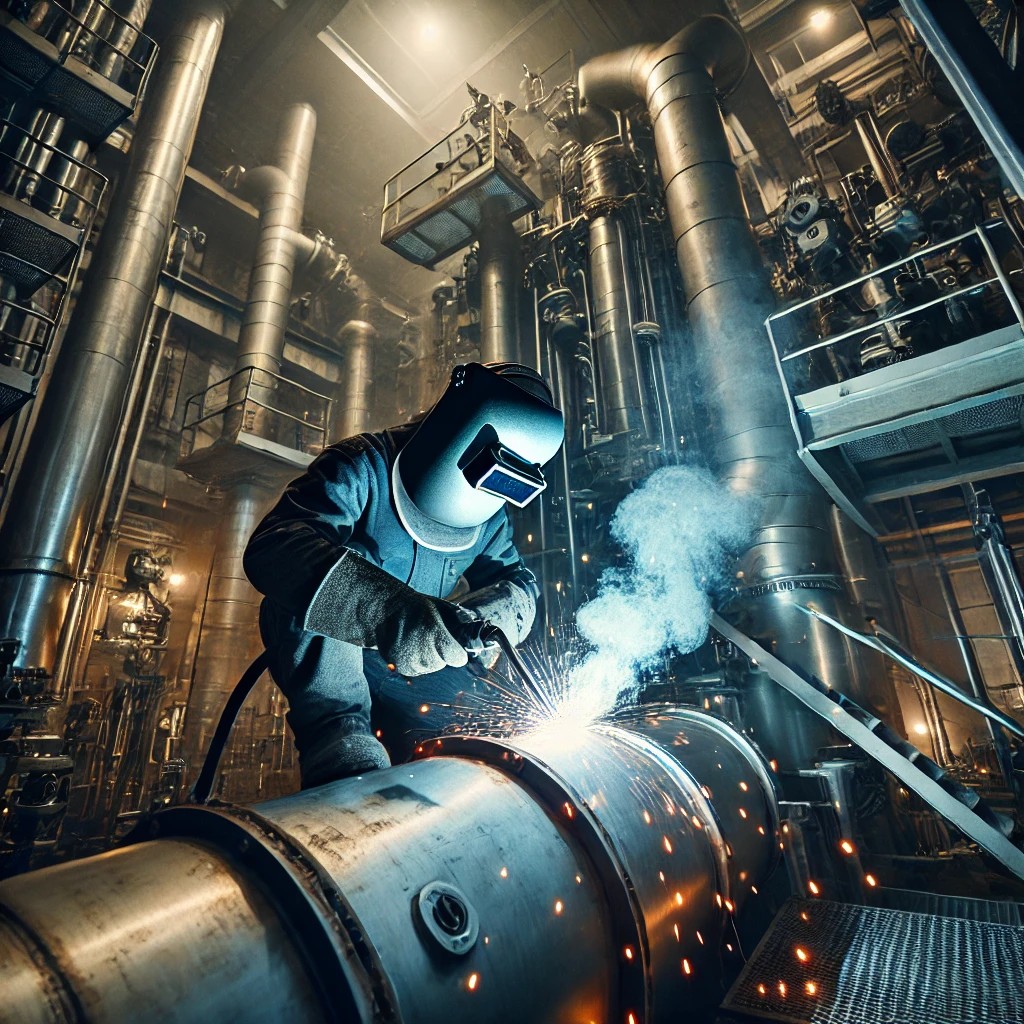Rapid Response: How Coded Welders Accelerate Emergency Boiler Tube Repairs in the Energy-from-Waste Sector
In the energy-from-waste (EfW) sector, maintaining continuous operation is critical. Boiler tubes, essential components of the waste-to-energy conversion process, are susceptible to wear and damage due to the harsh conditions inside EfW plants. When these tubes fail, it not only stops operations but also poses significant environmental and financial risks. This is where the expertise of coded welders comes into play, offering rapid and reliable repairs to keep downtime to a minimum.
The Crucial Role of Boiler Tubes
Boiler tubes are integral to the operation of EfW plants, where waste is converted into electricity and heat. These tubes carry high-pressure steam created from the heat generated by burning waste. Any failure in these tubes can lead to significant pressure drops, efficiency losses, and emergency shutdowns, making swift repairs essential.
What Are Coded Welders?
Coded welders are skilled professionals who have passed rigorous tests to be certified to weld according to specific codes and standards. These standards ensure that every weld is performed with precision and is capable of withstanding extreme conditions without failing. In the context of the EfW sector, coded welders are trained to handle the unique challenges posed by boiler tube materials and the environmental conditions within EfW plants.
Speed and Efficiency in Emergency Repairs
The ability of coded welders to perform under pressure is paramount in emergency boiler tube repair scenarios. These professionals are not only experts in welding but also in quickly diagnosing problems and executing repairs efficiently. Here’s how they accelerate the repair process:
- Rapid Mobilisation: Coded welders can be quickly dispatched to any site, equipped with the necessary tools and materials to begin repairs immediately.
- Expertise in Advanced Welding Techniques: They utilise advanced welding techniques suited for high-grade materials used in boiler tubes, which are often made from alloys that can withstand high temperatures and pressures.
- Quality Assurance: The adherence to coding standards means that each repair is performed to the highest quality, reducing the likelihood of repeat failures and further downtime.
Case Studies from the UK
Several EfW plants across the UK have benefited from the expertise of coded welders. For instance, a plant in Liverpool faced a sudden boiler tube failure that threatened to shut down operations for weeks. Thanks to the swift response of a team of coded welders, the plant was back in operation within days, significantly limiting environmental impact and revenue loss.
The Benefits Beyond Repairs
The involvement of coded welders in maintenance and repair extends beyond just fixing immediate issues. Their work helps in:
- Extending the Lifespan of Equipment: Regular maintenance by coded welders can extend the operational lifespan of boiler tubes.
- Preventive Measures: They also help implement preventive measures to reduce the frequency of emergency repairs.
- Training and Development: Coded welders often train onsite staff in basic inspection and maintenance procedures, enhancing the overall resilience of operations.
Conclusion
The rapid response and specialised skills of coded welders are crucial in minimising downtime in the energy-from-waste sector. Their ability to handle emergency repairs efficiently not only ensures that plants operate without significant interruptions but also supports the broader goals of sustainability and waste reduction. As the demand for waste-to-energy solutions grows, the role of these highly skilled professionals will only become more pivotal.

